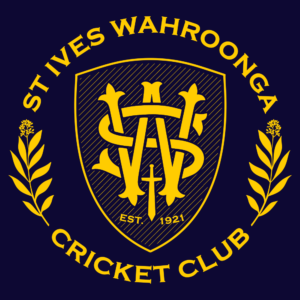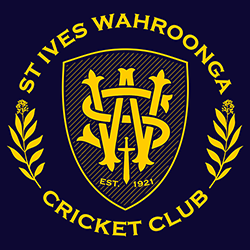The following code of conduct has been written so that each player understands their responsibilities in respect of the image of our club and the enjoyment and participation in the game for yourselves, your team mates, the opposition, the officials and those on or around the field of play. It extends to the respect of those individuals on and off the field, before during and after the game.
The code is written with consideration of, and should be read in conjunction with, the “Spirit of Cricket” available at the following link: http://www.lords.org/laws-and-spirit/spirit
As an over riding rule, players should always have in the back of their mind, that we are good enough to win regardless of the actions of others.
1. Every player will respect and adhere to the instructions and decisions of the umpire.
2. Every player will respect and adhere to the instructions and decisions of their captain.
3. No player should criticise or make comment, verbally, by action or gesture, to another player or official, including officials of other clubs and the association which may cause upset or distress to the individual.
4. Players should not make comment or take action that would deliberately distract an opponent during play.
5. Players must treat the club house and facilities with respect and due care. Any accidental damage or incidents should be reported to the Secretary and those responsible will be expected to pay for any damage caused by their actions.
6. Players should use reasonable judgement in addressing situations where they feel aggrieved, and in most cases should follow the steps below in dealing with it, depending upon the seriousness.
a) In the first instance they may choose to ask the opponent or team mate politely to cease and desist their actions. Players should consider the likely reaction to such a request and the appropriateness of it and may choose to skip this step.
b) If his captain is on the field, the player should report the incident to his captain.
c) The player (or the captain if on the field) should report the incident to the umpire.
d) The captain may choose to address the situation politely with the opposition captain.
7. At all times, before, during and after play, the umpires decision is final and should not be questioned. We all make mistakes, and we all suffer poor decisions, sometimes they even out and other times they do not. No player should in any way act to ‘even things up’. Always play fair.
8. In the event of repeated poor decisions, a captain may politely request that an umpire be replaced. It is only the captain who can make such a request and it should be directed towards the opposing captain and not the umpire.
9. Incidents do occasionally occur in the heat of a game, and each player who may inadvertently or deliberately have been involved in such an incident should: Apologise unreservedly for any words or actions, which have occurred, at the first available opportunity.
10. The committee and your captain invest considerable time and effort in getting 11 players on the field of play for our club. Failure to show, or short notice of absence will likely mean that your team plays short. Show respect for your team mates, captain and the club by making every effort to give plenty of notice of your availability or absence. Captains may choose not to select a player if they repeatedly “no show”, and may not select players with priority if they repeatedly withdraw with unreasonably short notice.
11. The club relies on your fees, ensure that you pay them promptly whether as a fully paid financial player or as a casual.
12. In the event that any player is unhappy with the behaviour or conduct of their captain, they should contact the club president, vice president or a serving member of the current committee.
Action in the event of an incident relating to this code of conduct
In the event of an incident of note relating to the St Ives Code of conduct occurring during a match, players and captains should take the following action:
a) Ensure that they can recall as much information as possible about the event;
b) If the player or captain believe that there is any possibility that the incident will be reported, or they wish to report the incident to the association, the incident should be reported to the club president or vice president that evening or the next morning. (All complaints to the association need to be lodged by the Tuesday following the incident);
c) Follow the instructions given to them by the president or vice president as to the best way to handle the situation going forward;
d) The complaints procedure may be as follows:
i) The president may choose to take no action, and recommend that the captains and (where able) players resolve such a situation prior to the commencement of the 2nd days play;
ii) In most instances, it is likely that the president will call the president of the opposing club and inform them of the incident. The presidents will usually make a recommendation to their respective captains as to how to resolve the situation. Players should note point (2) above;
iii) The president will make a decision (usually upon consultation with the vice president and/or secretary), as to whether the incident should be escalated to a formal complaint to the association;
iv) No player should make a complaint directly to another club or to the association except through the club president;
v) The club executives decision as to what action to take in respect of the incident is final.
Disciplinary procedure
In the event that a complaint is made against an individual or group of individuals of the club, the individuals involved, believed to be involved, or believed to have been present at the time of the incident, or aware of it, may be asked to submit a report either written, or in person to a sub committee formed by the club executive to handle the situation.
The decision of the sub committee is final and must be obeyed by the player.
Action may involve anything from an act of recompense, such as a letter of apology or act of good will, to a playing ban (with no obligation of financial compensation given in respect of fees paid). In extreme cases the player may be expelled from the club and/or association, and reported to Cricket NSW.
Where a player or players are called to appear before a Disputes and Disciplinary panel, the captain and a member of the executive will assist in preparing the response to the charge and all communication should be done through the club President or Secretary. If there is a need to appear in person, a member of the executive will appear with the player charged to offer them support.
As you will appreciate, some actions are indefensible, particularly when they are in contravention of the “Spirit of Cricket” and this “Code of Conduct”. This “Code of Conduct” exists to remind every player or member of the club of their expected behaviour. This is the behaviour expected of the best players at what we believe is the best club in the association. It is your responsibility to ensure that your conduct is in line with them. It is always the better man/woman or child who acts appropriately and shakes the hand of the opponent, even if their conduct is not in line with such a “Code of Conduct”.



